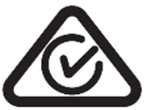About lithium-ion batteries
Lithium-ion batteries are a type of rechargeable battery that power almost all:
- laptops
- mobile phones
- e-bikes
- e-scooters
- power banks
- power tools
- cordless equipment.
Lithium-ion batteries are the most common batteries used in rechargeable devices. This is due to their:
- small size
- high energy density
- better power efficiency than other battery types.
Lithium-ion batteries are more dangerous than traditional batteries because of their chemical components.
Risks when using lithium-ion batteries
Lithium-ion batteries are highly flammable.
They can cause fires and explosions leading to:
- property damage
- serious injuries
- deaths.
Lithium-ion batteries can catch fire or explode if they're incorrectly:
- manufactured
- handled
- stored
- disposed of.
A lithium-ion battery fire is very difficult to extinguish as it may reignite and sometimes takes days to extinguish.
The Australian Competition & Consumer Commission (ACCC) saw a 92% increase in reports of incidents and fires caused by lithium-ion batteries in the 5 years to 2022.
How to safely use lithium-ion batteries
It is important to always follow the manufacturer’s instructions.
Buying products
Always:
- buy products that contain lithium-ion batteries from a known supplier
- follow the manufacturer’s instructions.
Never:
- directly import products that contain lithium-ion batteries or replacement lithium-ion batteries from overseas.
Handling and storing a lithium-ion battery product
Always:
- store lithium-ion batteries and equipment, like electric scooters, in cool dry places out of direct sunlight
- allow the lithium-ion battery to cool after use and before recharging
- only buy replacement batteries from the original supplier.
Never:
- use lithium-ion batteries, products or chargers that are showing signs of failure such as:
- overheating
- swelling
- leaking
- emitting an odour.
- leave lithium-ion batteries or products in hot places such as in parked vehicles
- repurpose batteries from one product to another.
Charging a lithium-ion battery
Always:
- use chargers supplied or recommended by the product manufacturer
- ensure the battery charger has the regulatory compliance mark:
- check devices while they are charging
- unplug products and chargers when the battery is fully charged
- charge lithium-ion batteries or products on a non-flammable surface, such as concrete, ceramic, or steel
- check that chargers are not physically damaged.
Never:
- mix and match chargers and products containing lithium-ion batteries
- leave lithium-ion batteries or products unattended for long periods while charging
- charge lithium-ion batteries or products on a flammable surface such as a bed, sofa, blanket or curtains
- charge your equipment in a bedroom or an area that might block your exit
- use a charger if it appears damaged.
Disposing of a lithium-ion battery product
For information about where and how to dispose of used batteries, see:
More information
- Country Fire Authority – Charging and battery safety
- Fire Rescue Victoria – Battery safety
ACCC report into lithium-ion batteries
The ACCC has released a report Lithium-ion batteries - Issues paper(opens in a new window)
This paper examines:
- the current lithium-ion battery market and regulatory landscape
- the risks and hazards in the lithium-ion battery life cycle
- available incident data.
The report makes a series of recommendations to improve lithium-ion battery safety outcomes.
Key recommendations include:
- enhancing consumer awareness on lithium-ion battery risks
- advocating for change to the electrical safety framework
- expanding data collection around hazards posed by lithium-ion batteries
- promoting lithium-ion battery disposal and recycling options.
Reporting incidents
We encourage the community to report incidents or injuries involving lithium-ion batteries:
Date: 20/10/2025 5:02
The currency and accuracy of this information cannot be guaranteed once printed or saved to a storage device. If in doubt, please check the Energy Safe Victoria website for the current version.
Reviewed
